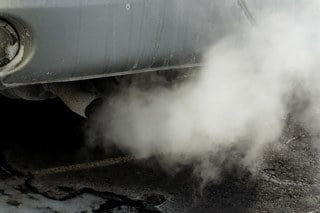The Government has launched a call for evidence on the impact of emissions from brakes, tyres and road wear in an effort to tackle all sources of pollution.
Having published its Road to Zero strategy, which aims to tackle tailpipe emissions, the Government says it is also vital its looks at the non-exhaust emissions that all road vehicles can produce.
The call for evidence, which was first announced in the new Clean Air Strategy, will look at ways to address the impact tyres and brakes have on air quality and our environment and will help inform the design of future policy.
Environment minister Thérèse Coffey said: “While we are all now well aware that fumes from the exhaust pipes on our cars can have a detrimental impact on human health, it is less well known that tiny particles that are released from our brakes and tyres also contribute to air pollution and can harm our precious marine life.
“This call for evidence will help us to learn more about how these particles are released as well the actions we can take to reduce their impact. I encourage anyone who has evidence or solutions to share to get involved.”
Vehicle brakes and tyres produce tiny pieces of particulate matter – for example dust and soot – that comes from general wear and tear. These particles are left on roads and when it rains can be deposited into our sewers and oceans, leading to harmful consequences to our marine wildlife and food chains.
Transport minister Jesse Norman said: “Particulate pollution from exhausts has been reduced substantially in recent years. But we must also take action to reduce the very serious pollution caused by the wear of tyres, brakes and roads.
“Tackling this issue is crucial for reducing air pollution. We would urge anyone who has expertise in this area to get involved and share their evidence and views.”
The Government has worked with the University of Plymouth to improve scientific understanding of the impact these tiny particles and it estimates that emissions from tyre wear may contribute as much as 5-10% to the total amount of plastic in our oceans.
However, further research and data in this area is still required which is why it has launched this call for evidence to improve the evidence base both nationally and globally.
The Call for Evidence will run until September 28.























Slow Steve - 21/01/2019 14:30
Any update on this, or did the government not go ahead with it? I saw here https://www.smmtco2.co.uk it was basically swept under the rug by Theresa May. Not really surprising with Brexit etc.